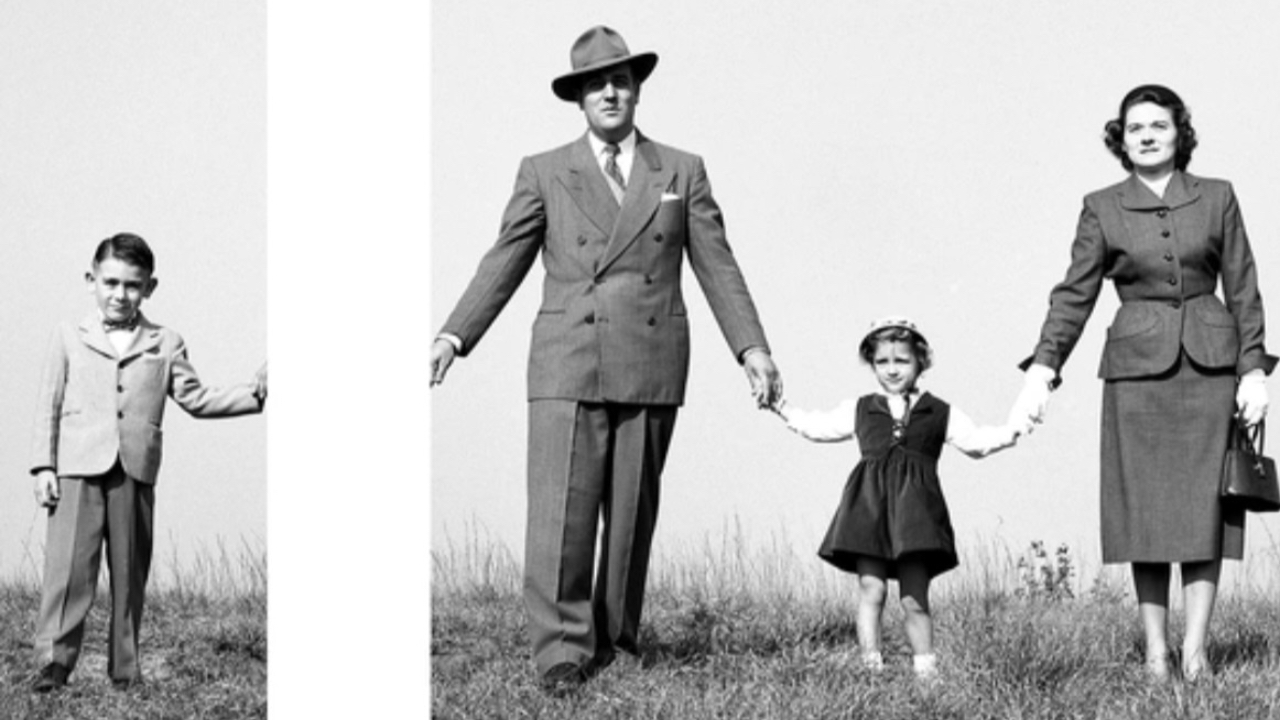Understanding Family Estrangement: When Relationships Break Down
Sep 26, 2025
Something that I see often working with ex-boarders is when a member of a family cuts themselves off from the others in the family, which can cause a lot of pain for all of those involved.
When relationships feel irreparable, some people make the difficult decision to sever ties completely. When someone chooses estrangement, it often begins as a form of self-protection. The relationship may have become so broken, so consistently hurtful, that maintaining contact feels impossible. In these moments, cutting ties can feel like the only way to preserve one's mental health and wellbeing.
However, as time passes, estrangement can take on different dimensions. What starts as protection may evolve into something more complex. It may be a way of expressing anger, hurt, or disappointment that couldn't be communicated directly. The silence itself becomes a message: "You hurt me so deeply that I cannot bear to have you in my life." For some ex-boarders who learned as young children that it was safer not to express their feelings, they may not have the language to express to their family what they are angry about or what they need. It feels so unbearable, that it is easier to stop contact.
For those on the receiving end of estrangement, the experience is often devastating. There's a profound sense of helplessness as you suddenly finding yourself powerless to repair a relationship that once meant everything. The shame can be overwhelming, accompanied by a crushing loss of control over something fundamental to your identity as a parent, sibling, or family member.
The mind goes into overdrive, desperately trying to make sense of the situation. "What did I do wrong? How did we get here? What could I have done differently?" These questions can consume thoughts, leading to sleepless nights and a persistent ache that colours every aspect of daily life. Self-esteem may plummet as you question your self-worth.
While estrangement may initially provide relief for the person who initiates it, maintaining that distance comes with its own price. The energy required to keep someone at bay and to resist the urge to reach out, to navigate family events where that person might be present and to constantly guard against any potential contact can be exhausting.
This ongoing vigilance affects the body, mind, and soul. The stress of maintaining boundaries while simultaneously grieving the loss of the relationship can manifest in physical symptoms, anxiety, and a persistent sense of incompleteness. There's also the weight of carrying unresolved feelings and the anger, hurt, love, and longing all get tangled together with no outlet for expression.
For many who attended boarding school, estrangement can sometimes take a subtler form. The early experience of being sent away, despite good intentions from parents, can create complex feelings. Children quickly learn that expressing unhappiness or difficulty is unwelcome and that they must present as happy and successful to justify their parents' investment and sacrifice.
This creates enormous pressure to succeed according to parental expectations. When adult children choose different paths, whether in career, lifestyle, or values, they may carry intense shame about disappointing their parents. The inner conflict between rage at being sent away and guilt about their own choices can become unbearable. Rather than confronting these feelings directly, many ex-boarders choose geographical estrangement, moving to the other side of the world. Officially, they're not estranged, but the physical distance ensures that meaningful connection remains impossible.
For some ex-boarders who experienced abuse at school, the situation becomes even more complex. Many never tell their parents about traumatic experiences, often saying, "It would really upset them" or "I couldn't do that to them." This protective instinct forces them to split off parts of themselves, presenting only acceptable versions to their families while carrying hidden trauma alone.
The Long-Term Consequences of Estrangement
The effects of family estrangement ripple through generations and extend far beyond the immediate relationship:
For the person who cuts contact:
- Chronic stress from maintaining emotional barriers
- Difficulty forming secure attachments in other relationships
- Unresolved grief that can resurface unexpectedly
- Physical health impacts from ongoing stress
- Potential regret, especially as parents age or die
- Loss of family history, traditions, and connection to roots
For those who are cut off:
- Persistent anxiety and depression
- Complicated grief without resolution
- Impact on other family relationships and dynamics
- Social isolation and shame
- Physical health consequences from chronic stress
- Loss of grandparent relationships with grandchildren
For the wider family:
- Fractured family dynamics
- Children caught in the middle
- Extended family forced to choose sides
- Loss of family unity during important milestones
- Intergenerational trauma passed down
What can help?
While estrangement can feel permanent, conversations are possible with the right support. Family therapy and couples therapy can provide the safe environment needed for these difficult conversations to take place. What often appears simple on paper, such as two people talking through their hurt, proves extraordinarily complex in practice.
In therapy, family members may feel able to speak freely and express their grievences. Their pain can be acknowledged without defensiveness. This recognition and validation is often the first step toward healing. A Therapist can help family members to
- Express long-held grievances safely
- Understand each other's perspectives
- Work through historical hurts
- Establish new patterns of communication
- Set appropriate boundaries that don't require complete cutoff
- Process traumatic experiences that may be underlying the estrangement
This is not easy and I have worked as a Therapist with mothers and daughters, and sons and parents. There is often anger that needs to be expressed and heard before any reconciliation can be reached. This may take time, but in my experience it is possible if all family members taking part are prepared to fully step into the process and hear what each other are saying.


